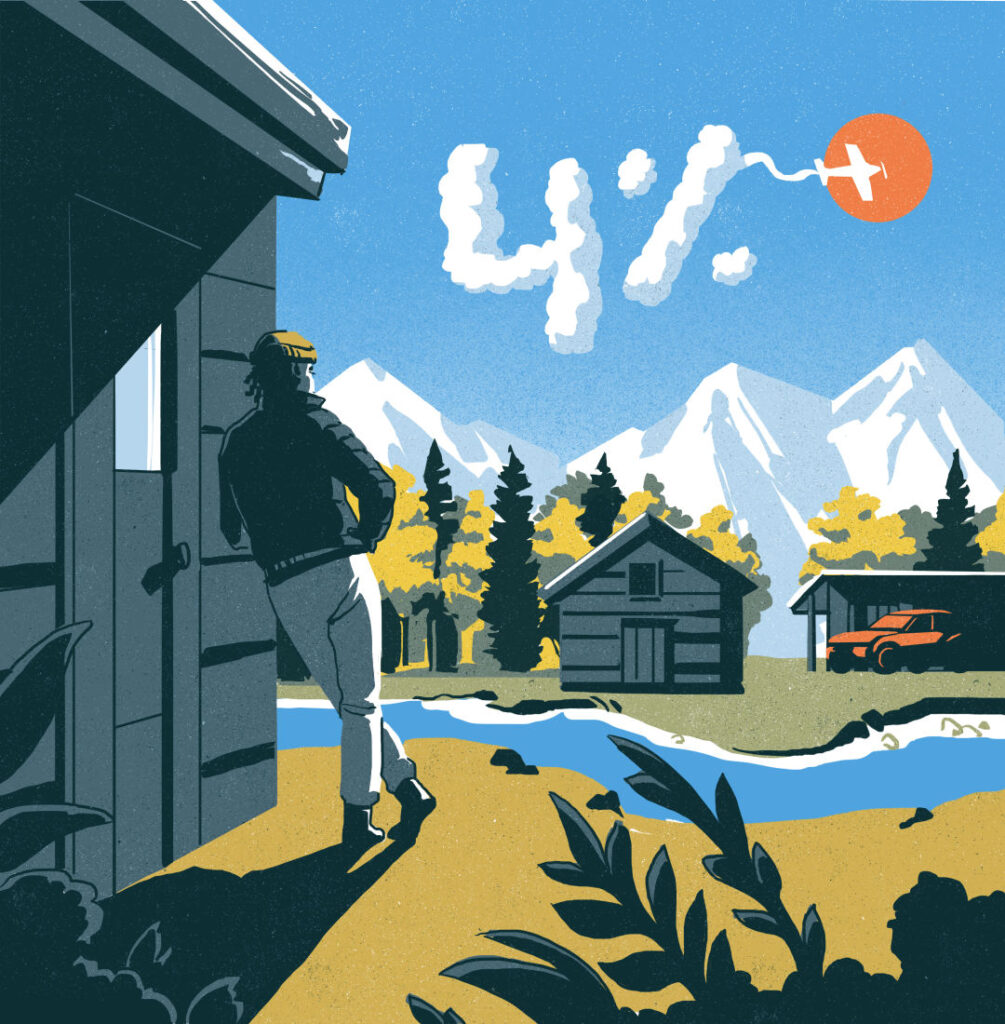This post was originally published on this site
Earlier this year, Seattle Times print subscribers were treated to a full-color, two-and-a-half-page ad wrapped around their Tuesday paper that read, “Say NO to the Vacation Tax.” The implication was that short-term rentals were under attack.
“Short-term rentals provide an affordable way for us to vacation,” claimed the ad, which was paid for by a PAC funded exclusively by Airbnb. This proposed “vacation tax,” the ad implied, would mean an end to affordable getaways in Washington.
More specifically, Airbnb was campaigning against Senate Bill 5576, a proposed 4 percent tax that local Washington state governments could excise on short-term rentals booked through platforms like Airbnb and Vrbo. The upside: It would raise $20 million in local affordable-housing and rental-assistance projects. The downside: another line item on that final Airbnb or Vrbo bill for customers.
Kathleen Jardin of Methow Reservations wants to see travelers book locally.
Airbnb was in clear opposition, to the tune of $2 million to fund that ad-buying PAC. Surprisingly, though, Airbnb competitor Vrbo—owned by Seattle-based Expedia—was in favor of the bill and encouraged its passage during public testimony in Olympia.
The debate over the bill is in many ways a proxy for the existential debate travelers and communities are having over where these services should fit. After all, vacation rental platforms, unlike other tech companies offering search or e-commerce services, are dealing in something far more tangible in the real world: housing.
Richard de Sam Lazaro, who leads Expedia Group’s North America Government and Corporate Affairs team, says that “one-size-fits-all” and “all-or-nothing” regulatory strategies “raise the risk of blunt outcomes like outright bans.” (New York and Barcelona have short-term rental bans in place and in the pipeline, respectively.) This tax can “provide an important pressure release valve” to keep the rental sector viable, he says.
A rep from Airbnb, meanwhile, says that it intends to continue funding its PAC, and Liz Lovelett, a state senator, aims to reintroduce the bill as is next year after it failed to make it out of this year’s legislative session. In a letter, Airbnb called the proposed tax “exorbitant.”
Since Airbnb launched in 2008, its founding myth has been dependent on couch-surf-y origins, but it’s not quite as mom-and-pop as its antitax ads and other corporate copy imply. In 2023 NerdWallet reported that the majority of users rent entire residences, with 30 percent of active listings owned by hosts with 21 or more properties.
These days the Airbnb user journey—for the traveler, at least—lacks the coziness or camaraderie that once set it apart from other lodgings, and increased taxes could erase another advantage it had over hotels subject to local taxes. (Notably, neither Airbnb nor Vrbo answered questions on whether it would absorb the cost of a 4 percent tax by reducing service fees.)
But there are other competitors at play, some Davids going up against the Goliaths. Take Methow Reservations, the Okanogan County–based booking service. It lists properties on Airbnb and Vrbo—but also puts out full-page ads on the back of the Methow Valley News to let tourists know they can find the same rentals for more affordable rates by booking directly on its website.
Co-owner Kathleen Jardin says she worked with the county government to prepare for implementing the SB 5576 tax locally if it passed. “I wish that more towns had a small company like ours,” Jardin says. “I would like it to be the only way to book, rather than letting out-of-area companies have money.”
“There are jurisdictions where [short-term rentals are] as much as 8 percent of the total housing stock in a given area,” Lovelett says, which poses “a pretty substantial problem.” When small-scale platforms have the ability to do online booking, they can amalgamate into a costly thorn in Airbnb’s side.
CEO Brian Chesky sees Airbnb getting broader.
Airbnb’s antitax efforts may be an attempt to recapture its branding as a community member, rather than a corporate hydra. But at the same time, Airbnb itself is trying to evolve past lodging alone. Founder and CEO Brian Chesky wrote what he called a “stream-of-consciousness manifesto” about how to position the company as more of an everything app for travel. Not just bookings for experiences from spas to wrestling shows, but a personalized AI-enabled concierge. “We’ve kind of, mostly, nailed vacation rentals,” he told Wired this year. “But we can do more.”
But the company isn’t abandoning Washington’s 4 percent “vacation tax” battlefield, apparently seeing it as a threat to that nailed-down status. Even as Airbnb continues to fight the tax, Lovelett notes that Vrbo worked with her and other state officials as a way to make sure “they’re not wearing out their welcome.” On the line is what vacations—and vacation destinations—could look like in Washington for years to come.
